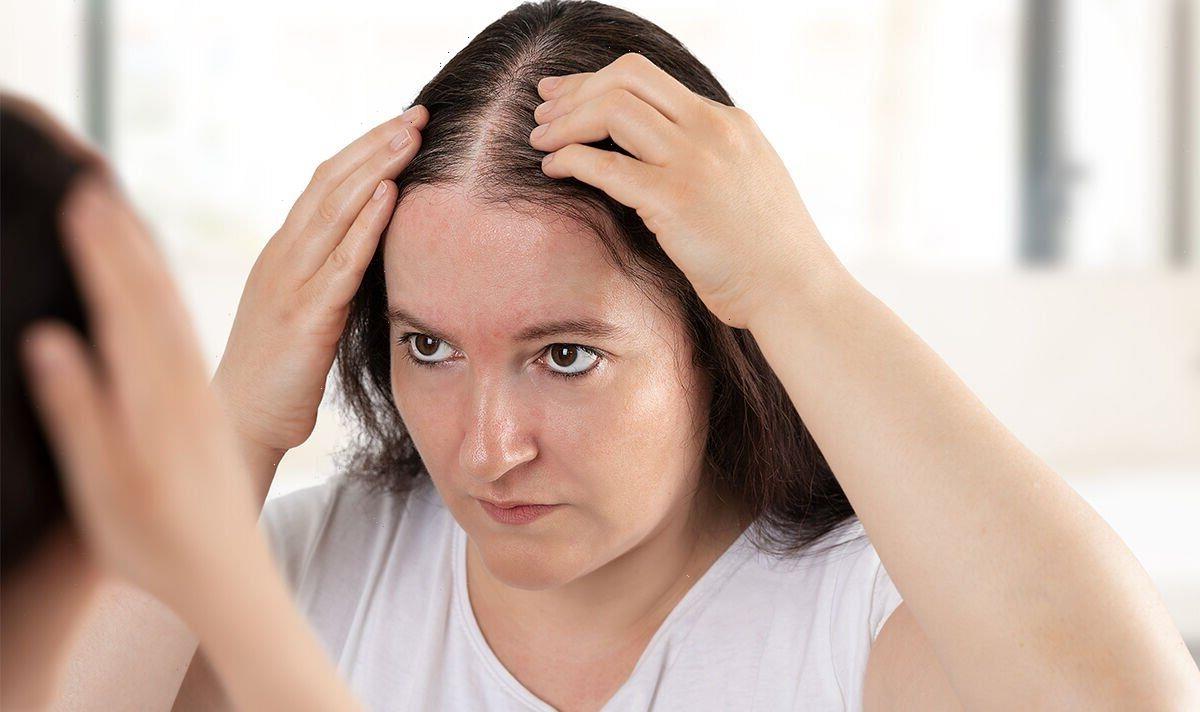Dr Renee talks about symptoms of hypothyroidism
We use your sign-up to provide content in ways you’ve consented to and to improve our understanding of you. This may include adverts from us and 3rd parties based on our understanding. You can unsubscribe at any time. More info
Hair loss can happen for a number of reasons. For some it might be genetic, while other people might experience it due to an illness. An expert warned that two thyroid issues could be to blame.
The thyroid gland is found in the neck and one of its main jobs is to produce hormones that help regulate the body’s metabolism.
It is possible to have either an underactive thyroid – hypothyroidism – or an overactive thyroid – hyperthyroidism.
Common side effects of these are linked to weight, with an underactive thyroid often leading to weight gain and an overactive thyroid causing weight loss.
According to dermatology and aesthetic registered general nurse, Emma Coleman, they can also lead to hair loss.

Speaking to Express.co.uk, she said: “Severe and prolonged hypothyroidism and hyperthyroidism can cause loss of hair.
“The loss is diffuse and involves the entire scalp rather than discrete areas. The hair appears uniformly sparse.
“Regrowth is usual with successful treatment of the thyroid disorder, though it will take several months and may be incomplete.
“It is unusual for mild hypothyroidism or hyperthyroidism, or short-lived thyroid problems to cause hair loss.
“Some forms of hypothyroidism and hyperthyroidism come on abruptly and are diagnosed early, while others may have been present for months or years before diagnosis.
“Hair loss due to thyroid disease becomes apparent several months after the onset of thyroid disease. This is due to the long hair cycle.
“In such cases, paradoxically the hair loss may follow the treatment for the thyroid and the thyroid medication may be erroneously blamed, leading to the withdrawal of treatment, which in turn may worsen the hair loss.”
Antithyroid treatment and hair loss
She explained how treatment for hyperthyroidism could also worsen hair loss.

“Antithyroid drugs (carbimazole and propylthiouracil) can, in rare cases, cause diffuse hair loss,” Ms Coleman said.
“It may be very difficult to tell whether the hair loss is due to the effects of the previous overactivity of the thyroid or the anti-thyroid drugs.
“In all probability, the antithyroid drugs are not the cause and it is unusual to have to seek alternative treatment for hyperthyroidism. Radioiodine does not cause hair loss.”
Autoimmune thyroid disease
Ms Coleman warned that most people with hypo or hyperthyroidism have autoimmune thyroid disease, which is often linked with alopecia areata.

She said: “Unlike the types of diffuse hair loss described above, alopecia areata causes discrete, often circular, areas of hair loss.
“In most cases, this is transient and does not progress, but unfortunately, it can cause significant baldness.”
Hyperthyroidism symptoms include:
- Nervousness, anxiety and irritability
- Mood swings
- Difficulty sleeping
- Persistent tiredness and weakness
- Sensitivity to heat
- Swelling in your neck from an enlarged thyroid gland (goitre)
- An irregular and/or unusually fast heart rate (palpitations)
- Twitching or trembling
- Weight loss.
Hypothyroidism symptoms include:
- Tiredness
- Weight gain
- Depression
- Being sensitive to the cold
- Dry skin and hair
- Muscle aches.
If you think you have either condition you should see your GP.
Source: Read Full Article
